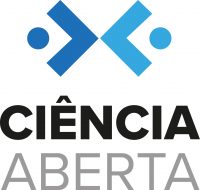Review Studies on Smart Destinations:
A Critical and Integrative Analysis of Literature
DOI:
https://doi.org/10.18226/21789061.v16i4p1083Keywords:
Smart Destination, Scientific production, Information and Communication Technology in Tourism, Destination Management, Literature reviewAbstract
Smart Destination [SD] has recently become a prominent topic in tourism’s literature. In this context, this critical and integrative review aims to analyze previous literature review studies on SD. The journals the articles were published, authorship, countries, institutional affiliation, recurring topics, and gaps in knowledge were evaluated. Regarding the methodology two mappings of articles were published in the Web of Science and Scopus databases. Following pre-established criteria, we selected ten articles published between 2017-2023. The articles were examined by content analysis with the help of Nvivo software. The articles were published by 25 authors in 10 different journals, focusing on the area of Tourism, and the production analyzed is concentrated in Spain. While articles in English emphasize sustainability and management, those in Spanish prioritize SD models. Future research could explore modern technologies, implementation of deeper sustainable approaches, greater attention to accessibility, and comparative studies on DTIs across different regions and cultures. The trends envisioned in the production of knowledge on the subject point to a growing integration of technology and sustainability, with a focus on improving the tourist experience and efficient resource management.
Downloads
Published
How to Cite
Issue
Section
License
Autores que publicam nesta revista concordam com os seguintes termos:
Os Autores mantém os direitos autorais e concedem à revista o direito de primeira publicação, com o trabalho simultaneamente licenciado sob a Creative Commons Attribution License que permitindo o compartilhamento do trabalho com reconhecimento da autoria do trabalho e publicação inicial nesta revista.
Autores têm autorização para assumir contratos adicionais separadamente, para distribuição não-exclusiva da versão do trabalho publicada nesta revista (ex.: publicar em repositório institucional ou como capítulo de livro), com reconhecimento de autoria e publicação inicial nesta revista.
Autores têm permissão e são estimulados a publicar e distribuir seu trabalho online (ex.: em repositórios institucionais ou na sua página pessoal) a qualquer ponto antes ou durante o processo editorial, já que isso pode gerar alterações produtivas, bem como aumentar o impacto e a citação do trabalho publicado (Veja O Efeito do Acesso Livre).








